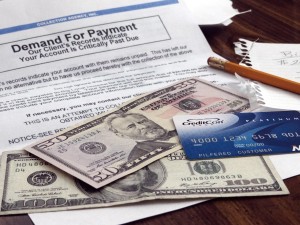 When the average person thinks of what is a “bankruptcy they are usually thinking about a chapter 7 bankruptcy. This kind of personal bankruptcy is sometimes referred to as “Liquidation Bankruptcy” or “Straight Bankruptcy” Chapter 7 bankruptcy can be used by both individuals and businesses. We intend to cover the rudimentary aspects of chapter 7 bankruptcy as it applies to individuals and to help you understand the process and the steps involved
When the average person thinks of what is a “bankruptcy they are usually thinking about a chapter 7 bankruptcy. This kind of personal bankruptcy is sometimes referred to as “Liquidation Bankruptcy” or “Straight Bankruptcy” Chapter 7 bankruptcy can be used by both individuals and businesses. We intend to cover the rudimentary aspects of chapter 7 bankruptcy as it applies to individuals and to help you understand the process and the steps involved
Chapter 7 Bankruptcy: What is It?
As soon as a debtor is given personal bankruptcy under the Chapter 7 personal bankruptcy, a trustee is designated by the personal bankruptcy court. The trustee then organizes to sell all the possessions, as proclaimed by the debtor. The proceeds generated is then utilized to repay the financial obligations owed to different financial institutions based upon the designated priority level. By doing this, some might view that the chapter 7 personal bankruptcy is the worst sort of bankruptcy since all of their possessions are sold, with the exception of those that are designated exempt as appropriate by the personal bankruptcy regulations of that specific state.
Why would I choose Chapter 7 Bankruptcy?
One thing that a filer needs to understand concerning the chapter 7 bankruptcy is that it is not an issue of “choice”. Not everyone could declare bankruptcy under chapter 7. There are particular qualification requirements that you must satisfy, in order to submit an application for chapter 7 personal bankruptcy. Due to changes in the law and the addition bankruptcy legislations to the personal bankruptcy code, all debtors must a means test pass prior to petitioning for bankruptcy. This process is called a “Means Test” and it is an examination where you need to declare your earnings as well as expenditures, in order to view if the cash left after subtracting the needed costs needed to repay the regular monthly payments of the different financial obligations that you owe. You are eligible for the chapter 7 bankruptcy if the cash left is less than the mean earnings of the state. However if the cash left after subtracting the expenditures, is greater than the mean earnings of the state, you will not be eligible to submit bankruptcy under chapter 7 of the personal bankruptcy code. For such instances, chapter 13 bankruptcy may be a more appropriate solution.
What is the Cost to File chapter 7 Bankruptcy?
The price of declaring bankruptcy under chapter 7 of the personal bankruptcy code, can vary between $600 to $1000 based upon the complexity of the case.. Also you must be aware of the future financial ramifications of filing and discharging a chapter 7 personal bankruptcy. A chapter 7 bankruptcy will stay on your credit report for a minimum of years. However since the financial collapse of 2008 many people have filed both Chapter 7 and chapter 13 personal bankruptcies. This has caused many financial institutions to rethink the severity of a bankruptcy on your credit history. Also a good bankruptcy attorney will have a plan and a methodology for how to re-establish your credit once your bankruptcy has been fully discharged. Make sure that when you choose a personal bankruptcy attorney in Michigan that you ask exactly how to go about reestablishing your credit after discharge
What Should I Do Next?
To understand even more concerning picking the best possible bankruptcy attorney and the various other specifics related to filing personal bankruptcy go to Kallabat & Associates for a FREE consultation